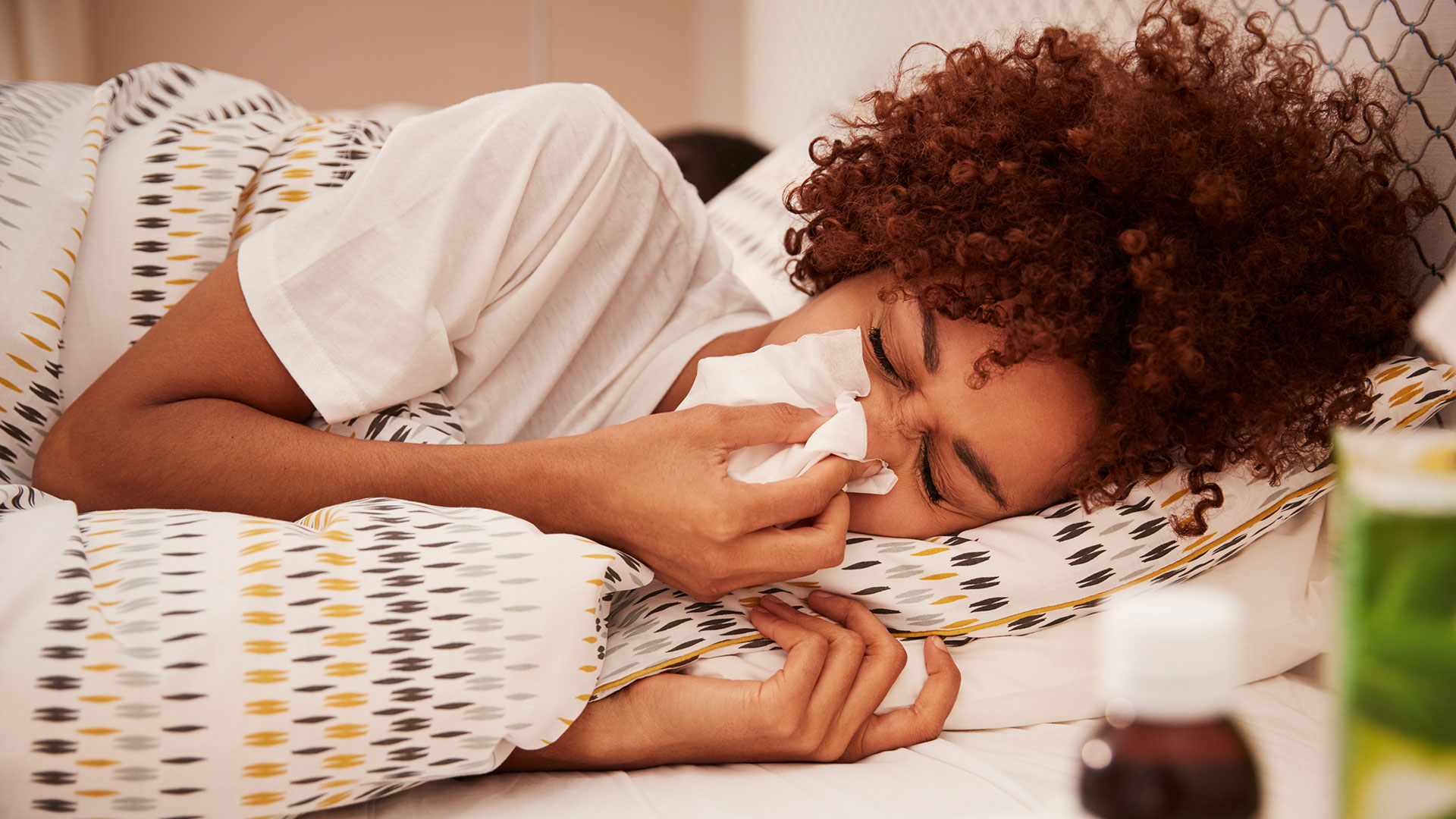
Springtime is upon us and while this means better weather and brighter days, seasonal allergies are also coming in fast. During spring, the pollen count starts to rise, affecting those who suffer from allergies like hay fever. While these symptoms are disruptive during the day, seasonal allergies can be just as challenging during the night, which can affect how you sleep and perform the next day.
To find out how to manage allergies during the night, we spoke to sleep expert and CEO of MattressNextDay, Martin Seeley, who shared 7 ways to prevent seasonal allergies from ruining your sleep.
- Update your sleep set-up with the best mattress
- If you struggle with allergies, here’s how to allergy proof your home
1. Close all doors & windows
To prevent allergens from getting in from outside while you sleep, Seeley suggests closing the windows and doors at night to improve the air quality inside your home. “When windows are open, dust, pollution and other airborne particles can easily enter your home and cause irritation to your airways, making it difficult to breathe. By closing the windows and doors, you can keep these pollutants out and breathe in cleaner air,” says Seeley. Indoor allergens are also more likely to accumulate in a closed room, so keeping doors and windows shut can reduce exposure to these, too. Alongside this, regularly dusting your furniture helps get rid of dust and using the best air purifier or the best dehumidifier helps improve the air quality in your home.
2. Change up your laundry routine
When the pollen count is high, pollen easily sticks to clothing and bedding. If you’re not washing your clothing or sheets regularly, these “particles accumulate on your clothing and continue to trigger allergic reactions even when you’re indoors.” To avoid this, it’s important to wash your clothes and bedding regularly and at a high temperature to remove pollen and reduce the risk of allergic reactions or other symptoms. Washing your bedding at 60° can break down allergens and kill dust mites that may be trapped in the fibres of your bedding.
3. Shower before bed
Showering before bed or after spending time outside helps remove allergens that may have collected on your skin and hair, reducing the likelihood of excessive sneezing and itching during the night. According to Seeley, “this is especially beneficial for people with asthma, as exposure to pollen can exacerbate these symptoms and interfere with their ability to get a good night’s sleep.” If you’re struggling to get to sleep at night, showering before bed can also aid sleep and improve sleep quality and quantity.

4. Throw a spare sheet over your duvet
To avoid pollen or dust from collecting on your bed, try “covering your bedding with a separate sheet to create a barrier.” By placing a clean sheet over your bedding and tucking it in around the edges to keep it in place, “this extra layer helps prevent pollen and allergens from settling on your bedding and coming into contact with your skin.” Alternatively, you can choose the best duvet for allergies.
5. Dab Vaseline on your nostrils
If you tend to sneeze frequently with allergies, Seeley suggests putting Vaseline on the inside of or underneath your nostrils to trap pollen and other airborne allergens before they enter your nose. The petroleum jelly reduces the pollens’ “entry into your nasal passages and alleviates hay fever symptoms.”
6. Tie up your hair
If you have long hair, tying your hair up at night prevents allergies by minimising the contact between your hair and face. “During the day, your hair can collect pollen particles and other allergens when you spend time outdoors. If you don’t tie your hair up at night, these allergens can transfer to your pillowcase and come into contact with your face,” says Seeley. Washing your hair before bed and keeping your hair out of your face also keeps your sleep environment clean and comfortable, which is a good rule of sleep hygiene.
7. Invest in hypoallergenic bedding
Finally, to avoid nighttime allergies and symptoms, invest in hypoallergenic bedding. Switching to the best sheets for allergy-proofing can make a huge difference to how you sleep, especially through the spring and summertime. “Hypoallergenic bedding is designed to repel dust mites and prevent them from accumulating. Made of tightly woven materials, hypoallergenic bedding prevents pollen from penetrating the fabric and coming into contact with your skin,” says Seeley.







